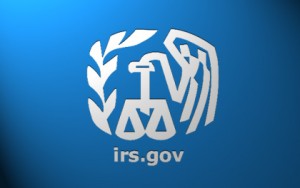 Last month the GAO, Government Accountability Office, produced a report on ‘Virtual Currencies’ and tax compliance. The report urges the IRS to look into the use of virtual currencies and release guidelines on taxation of income earned via these currencies.
Last month the GAO, Government Accountability Office, produced a report on ‘Virtual Currencies’ and tax compliance. The report urges the IRS to look into the use of virtual currencies and release guidelines on taxation of income earned via these currencies.
The report correctly notes that virtual currency transactions are similar to cash or barter transactions. There are no third parties involved whose responsibility it is to report the transaction and transactions of this sort making “underreporting, mischaracterization, and evasion” much easier.
This does signal that the IRS will be keeping a closer eye on the Bitcoin economy, but there is nothing terribly surprising here; the IRS wants a share of your income…however you earn it.
The Report is 27 pages long and can be read here.
Below are a few excerpts.
“A virtual currency is, generally, a digital unit of exchange that is not backed by a government issued legal tender. “ (p7)
“IRS is responsible for ensuring taxpayer compliance for all economic areas, including virtual economies and currencies. One mechanism that assists IRS in enforcing tax laws is information reporting, through which third parties report to IRS and taxpayers on certain taxpayer transactions.“ p13
“Transactions within virtual economies or using virtual currencies could produce taxable income in a number of ways depending on their specific facts and circumstances. U.S. tax laws and regulations generally require taxpayers to report and pay taxes on all income, regardless of the source from which the income was derived; there are no additional rules specific to virtual currencies or economies. For example, similar to cash transactions, there are no third -party reporting requirements specific to virtual economy or currency transactions, as there are with some other types of electronic funds transactions, such as with transactions conducted through third-party payment networks. Taxpayers are required to account for any taxable income, including income that is not subject to third -party information reporting.“ (p14)
“Bill is a bitcoin miner. He successfully mines 25 bitcoins. Bill may have earned taxable income from his mining activities.
Carol makes t-shirts and sells them over the Internet. She sells a t-shirt to Bill, who pays her with bitcoins. Carol may have earned taxable income from the sale of the t-shirt.” (P16)
“IRS, tax experts, academics, and others have identified various tax compliance risks associated with virtual economies and currencies, including underreporting, mischaracterization, and evasion. These risks are not unique to virtual economies and currencies, as they also exist for other types of transactions, such as cash transactions, where there are not always clear records or third-party tracking and reporting of transactions.” (P16)
Further analysis is available here from Forbes contributor Robert W. Wood.